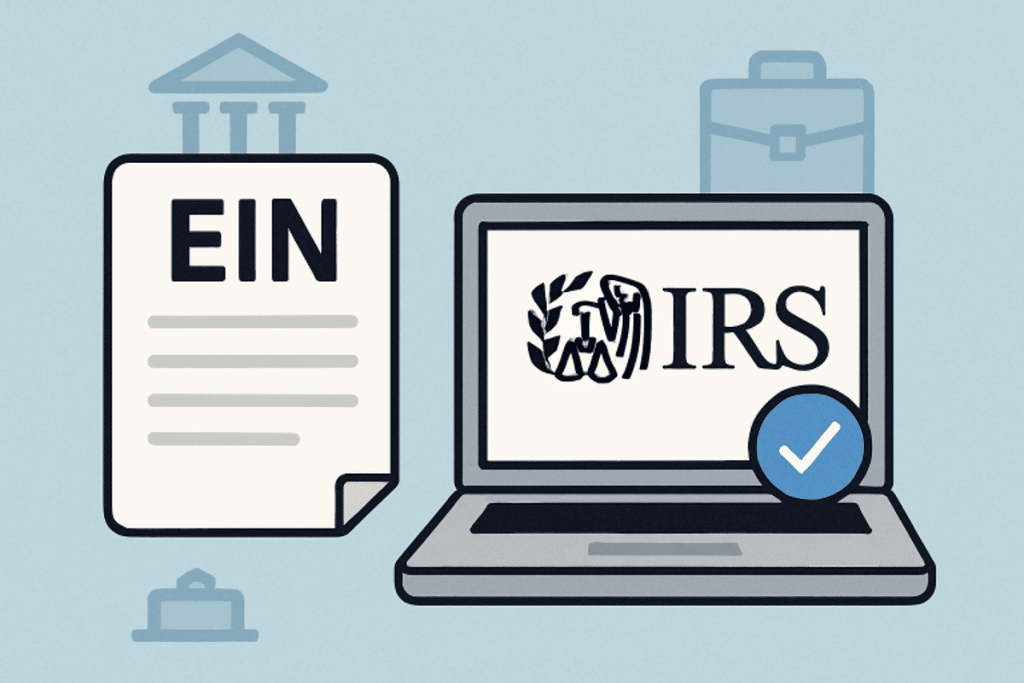Introduction
The Federal Tax Identification Number (EIN), or Employer Identification Number (EIN), is a crucial step for businesses in the US, and visit Tax ID Bureau can help clarify the process. It is issued by the Internal Revenue Service (IRS) and serves as a unique identifier for businesses, helping them fulfill tax obligations and administrative requirements. Understanding the application process is essential for legal and financial compliance. The IRS offers resources to guide businesses through each step, including a streamlined EIN application experience. Securing an EIN is not only a legal necessity but also provides practical benefits like opening business bank accounts, hiring employees, and applying for permits and licenses. The IRS offers both digital and traditional options to suit different needs and locations. Understanding when and why an EIN is needed can save time, money, and potential headaches.
What Is an EIN?
An Employer Identification Number (EIN) works like a Social Security Number but is exclusively for business entities. The IRS uses it to track business tax accounts, making it a mandatory identifier for nearly all business activities involving federal taxes. While sole proprietors without employees may not be legally required to have an EIN, opting for one can help you separate your business and personal finances more effectively, reduce the risk of identity theft, and give your business a more professional standing.
Who Needs an EIN?
Not all entities are legally required to have an EIN, but you must obtain one if your business:
- Has employees.
- Operates as a partnership or corporation.
- Files special federal tax returns, such as for employment, excise, or certain retirement plans.
- Withholds taxes for non-resident aliens.
- Uses a Keogh plan for retirement benefits.
- Falls under specific types of organizations, like trusts or non-profits.
Even if you don’t fall into one of these categories, having an EIN can open doors to business services, enhance your credibility, and simplify many financial operations.

How to Apply for an EIN
The IRS makes it convenient to apply for an EIN through multiple channels:
Online Application
The quickest way to get your EIN is by using the IRS’s online portal. This service is available for entities with a principal business location in the United States or U.S. territories. The form is straightforward, and once submitted, your EIN is issued immediately.
Fax or Mail Application
You can also complete Form SS-4 and send it by fax or mail to the IRS. Faxed applications typically take up to four business days, while mailed forms may require several weeks for processing. Double-check your form for accuracy, as errors can cause significant delays.
International Applicants
International applicants must call the IRS at 267-941-1099 between 6 a.m. and 11 p.m. Eastern Time, Monday through Friday, to obtain an EIN. This number isn’t toll-free. Alternatively, international businesses can submit Form SS-4 via mail or fax as described above.
Information Required for the Application
Gather the following details before submitting your EIN application:
- Business legal name and trade/DBA name, if applicable
- Responsible party’s name and Taxpayer Identification Number (SSN, ITIN, or EIN)
- Business mailing and physical address
- Type of entity (such as sole proprietorship, partnership, or corporation)
- Reason for applying (such as a new business or hiring employees)
- Date business started or was acquired
- Primary business activity
Having this information prepared in advance ensures the fastest processing and reduces the risk of mistakes.
Common Mistakes to Avoid
- Submitting incorrect, incomplete, or inconsistent information on your application
- Applying for an EIN before your business is legally established with your state
- Paying unnecessary fees to third-party services for an EIN when the IRS provides this service at no cost
Addressing these common errors ahead of time helps you receive your EIN without avoidable setbacks. For more in-depth guidance, the U.S. Small Business Administration (SBA) provides helpful resources for applicants.
Using Your EIN
Once you have your EIN, use it for all important business operations, including:
- Filing federal and state tax returns
- Opening and managing business bank accounts
- Applying for business licenses and permits
- Hiring employees and handling payroll tax filings
Keep your EIN secure and readily accessible, as it will be required whenever you transact with government agencies, financial institutions, or contractors.
Conclusion
Applying for a Federal Tax Identification Number is a straightforward, essential process for U.S. businesses. It not only ensures you comply with federal tax regulations but also enhances the legitimacy and operational flexibility of your enterprise. With free applications provided directly by the IRS and clear information requirements, obtaining an EIN is an achievable milestone for new and established businesses alike.
